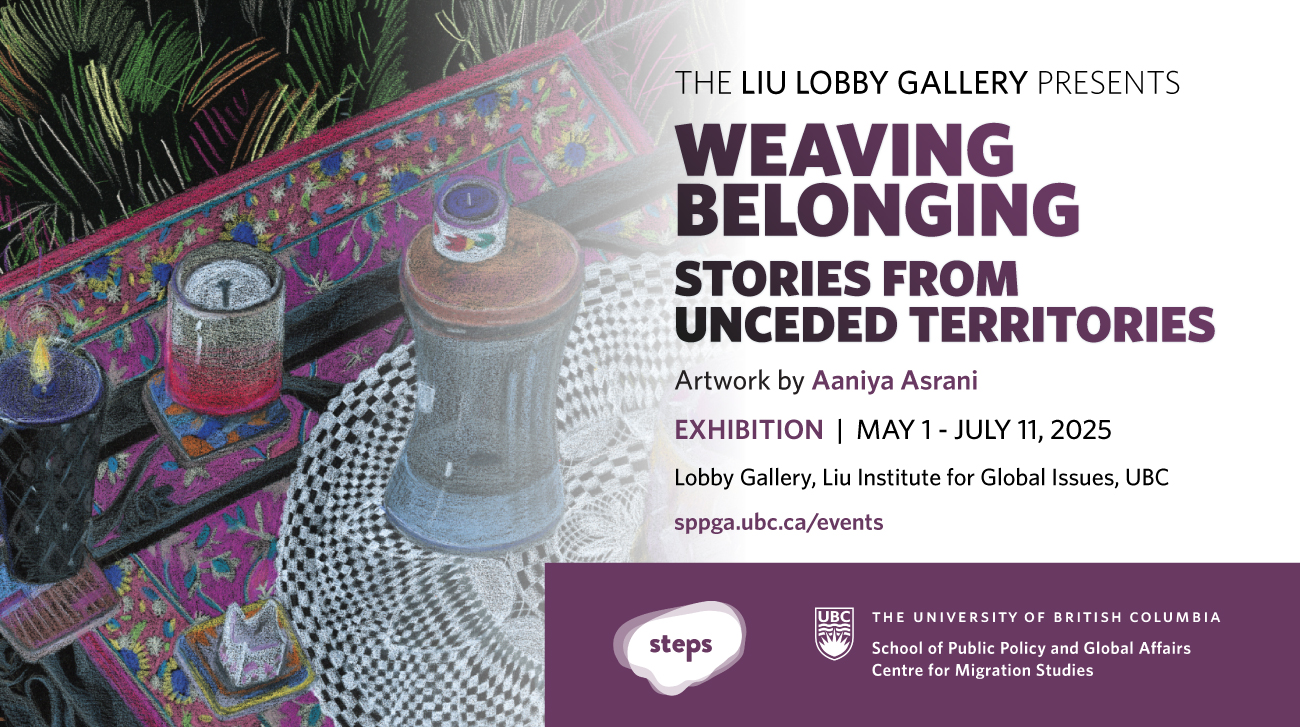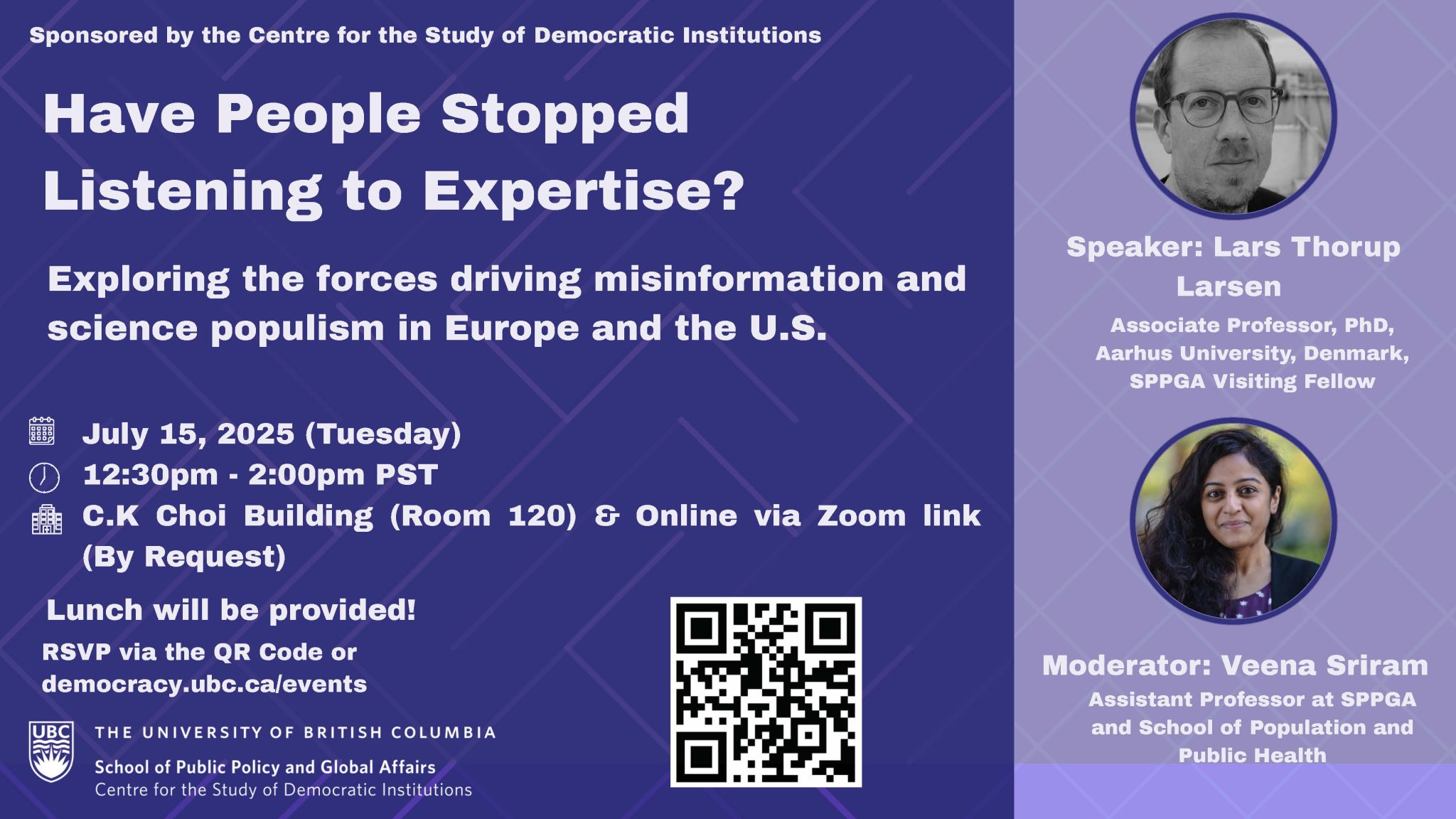Virtual Book Launch – Active Non-Alignment: An IR Doctrine for This New Century
Explore a new book by Ambassador Jorge Heine, Research Professor at the Frederick S. Pardee School of Global Studies at Boston University, titled El No Alineamiento Activo y América Latina: una doctrina para el nuevo siglo (Active Non-Alignment and Latin America: A Doctrine for the New Century). The discussants will address the topic from American and Canadian interests and potential reactions.
Welcome Remarks: Clara Renault, Student, Master of Public Policy and Global Affairs
Speaker: Ambassador Jorge Heine, Research Professor, Pardee School of Global Studies, Boston University
Discussant: Jeff Reeves, Vice-President, Research & Strategy, Asia Pacific Foundation of Canada
Discussant: Paul Evans, Professor, School of Public Policy and Global Affairs
Moderator: Grace Jaramillo, Sessional Instructor, School of Public Policy and Global Affairs
Speaker Bios: Ambassador Jorge Heine is a research professor at the Pardee School of Global Studies, Boston University, and a Wilson Center global fellow. He was previously ambassador of Chile to China ( 2014-2017), to India ( 2003-2007) and to South Africa ( 1994-1999), and a Cabinet minister in the Chilean government. A past VP of the International Political Science Association (IPSA), he was CIGI Professor of Global Governance at Wilfrid Laurier University ( 2007-2017), and a distinguished fellow at the Centre for International Governance Innovation (CIGI). He has held visiting appointments at the universities of Konstanz, Oxford, Paris and Tsinghua, and has published 16 books, including The Oxford Handbook of Modern Diplomacy (OUP, 2013,2015).
The book, Active Non-Alignment and Latin America: A Doctrine for the New Century, edited by Carlos Fortin, Jorge Heine and Carlos Ominami , and published by Catalonia in Santiago, Chile, puts forth an ambitious proposal to deal with Latin America’s current crisis–the deepest in 120 years, according to the UN’s ECLAC. It takes a page from the original non-alignment doctrine, but adapts it to the new century, and what is emerging as a post-Western world. It argues that, rather than letting themselves be pressured to side either with Washington or with Beijing in a nascent Second Cold War, Latin American countries should focus on their own interests. To break out of the region’s current diplomatic eclipse , the strengthening of regional entities, a renewed commitment to multilateralism, diplomatic coordination on matters of global economic governance, and a reorientation of foreign policies, are some of the urgent steps needed. Contributors to the book include leading Latin American IR specialists and Latin Americanists from seven countries, as well as five former foreign ministers ( from Argentina, Brazil, Chile, Mexico and Peru). At a time of major political changes in Latin America, the book has already triggered quite a debate, with launches in Santiago, Sao Paulo, Buenos Aires and Lima, and write-ups in journals as different as Pensamiento Propio and Foreign Policy.
Grace Jaramillo teaches Public Policy at the UBC Master of Public Policy and Global Affairs program at the School of Public Policy and Global Affairs and currently member of the Board of Directors of the Canadian Latin American Studies Association, CALACS. She earned her PhD from Queen’s University in 2016. Immediately after, she won a SSHRC Postdoctoral Fellowship to study institutional spillovers of Free Trade Agreements in the Americas, spending the first year at the Balsillie School of International Affairs at University of Waterloo, and then moving this research project to UBC to complete her research studying the CPTPP negotiations. Before moving to Canada, she was an accomplished International Relations expert and head of the Department of International Relations at FLACSO-Ecuador.
Paul Evans is Professor and HSBC Chair in Asian Research at the School of Public Policy and Global Affairs at the University of British Columbia. His research and teaching focus on Asian and trans-Pacific international relations and Canadian policy choices in the Asia Pacific region.
Dr. Jeff Reeves is Vice-President, Research and Strategy for the Asia Pacific Foundation of Canada. Prior to joining APF Canada, Dr. Reeves was the Director of Asian Studies at the United States Army War College in Carlisle, Pennsylvania. Dr. Reeves has over 15 years direct experience living and working in Asia, including as an Associate Professor with the Daniel K. Inouye Asia Pacific Center for Security Studies in the United States, as a Research Fellow with Griffith University in Australia, and as a University Instructor at Peking University in the People’s Republic of China. Dr. Reeves has worked with the United Nations Development Program and World Wildlife Foundation in Beijing and as a Research Assistant with the London School of Economics and Political Science’s (LSE) Asia Research Centre in London. Dr. Reeves served in the United States Peace Corps from 2001 to 2003 in Khovd, Mongolia.
Co-hosted by: The Institute of Asian Research, the School of Public Policy and Global Affairs, UBC; Canadian Association for Latin American and Caribbean Studies (CALACS)

